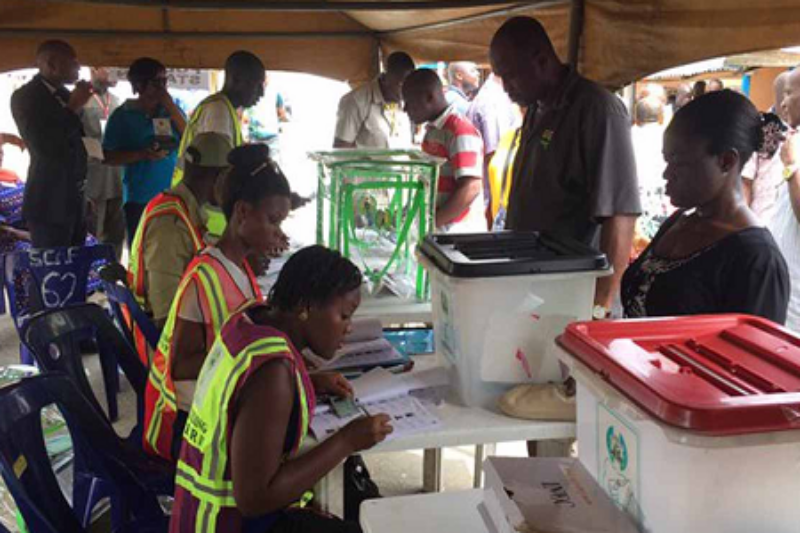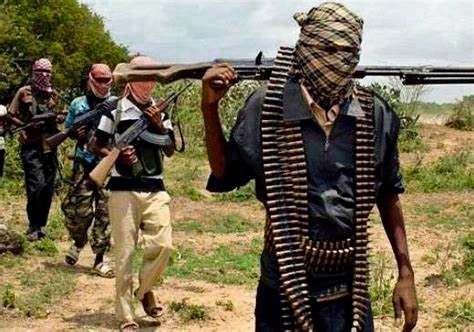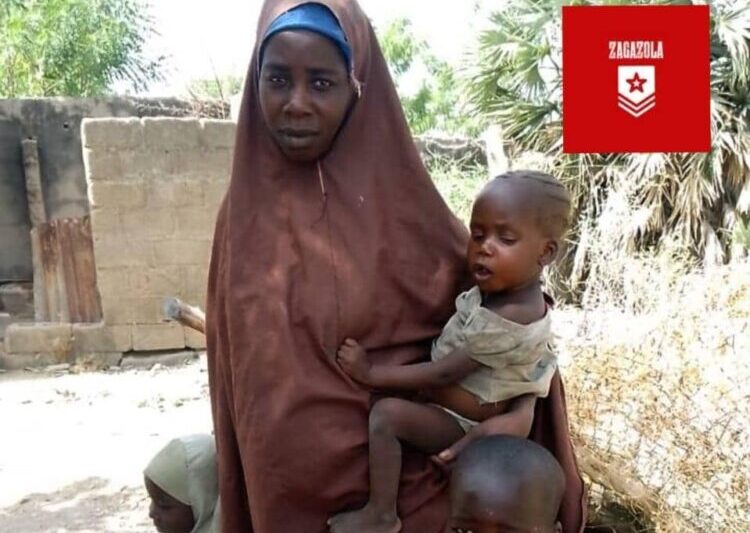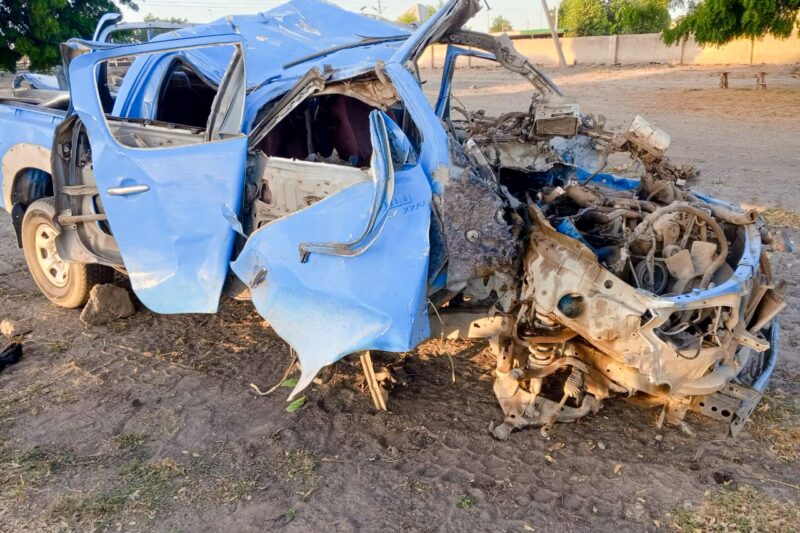Citizens of Borno State have just 11 days left to get their Permanent Voters Cards (PVCs), without which they will not be able to cast their ballot in the February 25 general elections in Nigeria.
Abba Liberty, the public relations officer of the Borno State chapter of the Independent National Electoral Commission (INEC), told RNI that it was crucial for everyone eligible to vote to get their PVCs as soon as possible.
He warned people that if they did not have a PVC they would not be allowed to cast their vote.
“You can’t participate in the elections if you don’t have the PVC, meaning you can’t elect the candidate of your choice. This could also contribute to the low turnout of voters during elections. A PVC is not only vital for voting, but you can also use it to open a bank account, apply for jobs and you can even use it as an identity card.
“The distribution of PVCs was officially started several months ago, but the turnout was very low and that was why we decided to extend the distribution by setting up centres at community levels in local government areas so that those who cannot afford to travel to the INEC offices can still get their cards. We started the distribution at the community levels officially on January 16 and it will last January 22. Then we will continue the distribution at INEC offices on January 23 and finally close on January 29.
“So far, we have the total number of 148,892 registered voter cards of which 7,777 are new registrations. We have a total number of 75,000 whose cards were either lost or damaged, as well as those who have moved to another area since the last elections. More than 35,000 of these cards have been distributed.
“But,” Liberty said, “we have more than 151,000 PVCs at our office that have not been collected.”
He said there had been a low turnout of people collecting their PVCs.
“But, once we started distributing the cards at community levels, it has improved. It is our hope all people will get their PVC before the final day on January 29.
“The distribution is going on at all 27 local government areas of the state. We could not do this previously because it was too dangerous during the insurgency. But things are different now and the security situation has improved.
“We still don’t send our staff to small villages because of security reasons – they operate at the local government headquarters and in a few towns where security operatives are providing protection. But, because of the insecurity, some people are finding it very difficult to get their cards because they have to leave their villages to get to the main town to collect them and they are afraid of being attacked.”
He said people had expressed concern about how people with disabilities, as well as pregnant women, would get their cards, especially if there were long queues.
“We are giving special consideration to people living with disabilities, and pregnant women, and have asked our workers at all distribution centres to give these people special treatment. They must be served first so that they do not have to queue all day. And, if there are many of them, we set up a special queue and get dedicated staff to attend to their needs.
“This will not only happen during collections, but also during the elections. We have brail ballot papers for blind people to make it easier for them to cast their votes. We have also organised a special orientation day to explain to them how to use the brail ballot papers.”
Liberty said the Maiduguri Metrolpolitan Council had received complaints from community members who claimed that INEC staff had been trying to extort money from them to get their PVCs.
“We investigated the allegations and found two men had been responsible for this. They were not INEC staff members, they had just been using our name to get money out of ignorant people. They were arrested and are still in police custody.
“So, I cannot deny that this has happened, but I can assure you these people do not work for us. INEC doesn’t extort money from people. It’s our responsibility to serve the people and our services are free of charge.
“I call on people not to give money to any person who says they work for INEC and I urge citizens to report that person to the officials.
RNI reporter Zainab Alhaji Ali spoke to voters in Maiduguri, some of whom were all set for the elections, while others were still struggling to get their PVCs.
Aisha Ibrahim Muhammad said: “I’m originally from Bama and I am an internally displaced person now living here. I had no trouble getting my PVC and I’m happy.”
Bulama Modu said he had heard that some people were struggling. But, he said, he had come from Kawuri village and carried his PVC wherever he went. Even during the insurgency he carried it with him and took it when he escaped.
“So, I am ready to vote,” he said with a great big grin on his face.
Ya Falmata, also from Kawuri, said: “I have tried to get my PVC several times but have not succeeded. I am poor but even though each time I struggled to get the money to travel to the centre of the city, I still have not been able to get it because of the long queues.”
Modu Bana said: “We are not happy with INEC because, even though the commission has made at least 20 announcements telling people they need to get their PVCs, I have gone to the INEC headquarters, stood in the long queues and waited patiently. The next thing someone comes out to tell us their machines are faulty and we will have to return at a later date.”
He said local state sources had told them that the distribution of cards was closed.
“I know of at least 200 people who still do not have their cards. The commission should pay special attention to the youth in the state.
They make up the majority of people and are eager to participate in the elections – INEC officials should target them particularly.”
He said one of the problems was that many people did not know where to go to register for their cards.
Yazara said: “I registered for my card in Dalori but I don’t know where to collect it.”
Falta Kawu agreed, saying he had also registered in Dalori but he had not been told where to collect his PVC and did not know where to cast his vote because there had been no INEC official around when he registered.
RNI Reporter Mustapha Abubakar went to one of the local distribution centres to talk to people with disabilities.
Falmata Goni Bukar, a crippled woman, said: “I don’t have my voter card. I have been to the centre twice now but I still have not got it. We are suffering because of the long queues. Even healthy people are struggling.”
She said her family had been told how important it was to get their PVCs because then they would be able to vote for the leader of their choice when the elections came.
“Now, I don’t know if I will get my PVC on time. I am calling on the government to provide a place for disabled people to collect their PVCs without queueing for such a long time. Just because we are disabled, we still have the right to vote. I know of many disabled people who have not been able to get their PVCs.”
Alhaji Muktar, a blind man, told RNI that he had been to the centre to get his PVC four times but still had not been able to get it.
“I’m feeling sad because if I don’t have my card I will not have access to vote. Sometimes, perfectly healthy people push us aside to get to the front of the queue. They don’t care. And in the centre they do not have a specific area where people with disabilities can collect their cards. If only they would make a special place for us. We not only have the right but also want to vote.”
MAMMAN MAHMOOD, AISHA SD JAMAL and ZAINAB ALHAJI ALI









